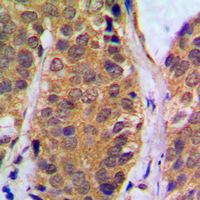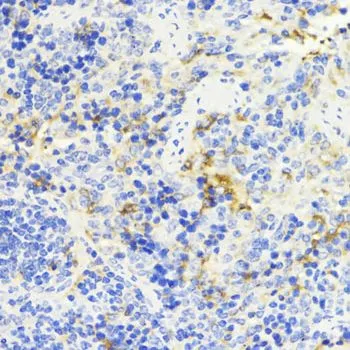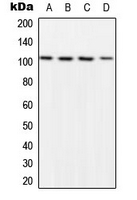
WB analysis of LPS-treated HeLa (A), LPS-treated NIH3T3 (B), LPS-treated Raw264.7 (C), rat kidney (D) whole cell lysates using GTX32341 NFkB p105 (phospho Ser932) antibody.
NFkB p105 (phospho Ser932) antibody
GTX32341
ApplicationsWestern Blot, ImmunoHistoChemistry, ImmunoHistoChemistry Paraffin
Product group Antibodies
ReactivityHuman, Mouse, Rat
TargetNFKB1
Overview
- SupplierGeneTex
- Product NameNFkB p105 (phospho Ser932) antibody
- Delivery Days Customer9
- Application Supplier NoteWB: 1:500 - 1:1000. IHC-P: 1:100 - 1:200. *Optimal dilutions/concentrations should be determined by the researcher.Not tested in other applications.
- ApplicationsWestern Blot, ImmunoHistoChemistry, ImmunoHistoChemistry Paraffin
- CertificationResearch Use Only
- ClonalityPolyclonal
- ConjugateUnconjugated
- Gene ID4790
- Target nameNFKB1
- Target descriptionnuclear factor kappa B subunit 1
- Target synonymsCVID12, EBP-1, KBF1, NF-kB, NF-kB1, NF-kappa-B1, NF-kappaB, NF-kappabeta, NFKB-p105, NFKB-p50, NFkappaB, nuclear factor NF-kappa-B p105 subunit, DNA-binding factor KBF1, nuclear factor NF-kappa-B p50 subunit, nuclear factor kappa-B DNA binding subunit, nuclear factor of kappa light polypeptide gene enhancer in B-cells 1
- HostRabbit
- IsotypeIgG
- Protein IDP19838
- Protein NameNuclear factor NF-kappa-B p105 subunit
- Scientific DescriptionThis gene encodes a 105 kD protein which can undergo cotranslational processing by the 26S proteasome to produce a 50 kD protein. The 105 kD protein is a Rel protein-specific transcription inhibitor and the 50 kD protein is a DNA binding subunit of the NF-kappa-B (NFKB) protein complex. NFKB is a transcription regulator that is activated by various intra- and extra-cellular stimuli such as cytokines, oxidant-free radicals, ultraviolet irradiation, and bacterial or viral products. Activated NFKB translocates into the nucleus and stimulates the expression of genes involved in a wide variety of biological functions. Inappropriate activation of NFKB has been associated with a number of inflammatory diseases while persistent inhibition of NFKB leads to inappropriate immune cell development or delayed cell growth. Alternative splicing results in multiple transcript variants encoding different isoforms, at least one of which is proteolytically processed. [provided by RefSeq, Feb 2016]
- ReactivityHuman, Mouse, Rat
- Storage Instruction-20°C or -80°C,2°C to 8°C
- UNSPSC12352203

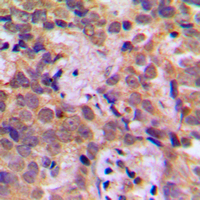

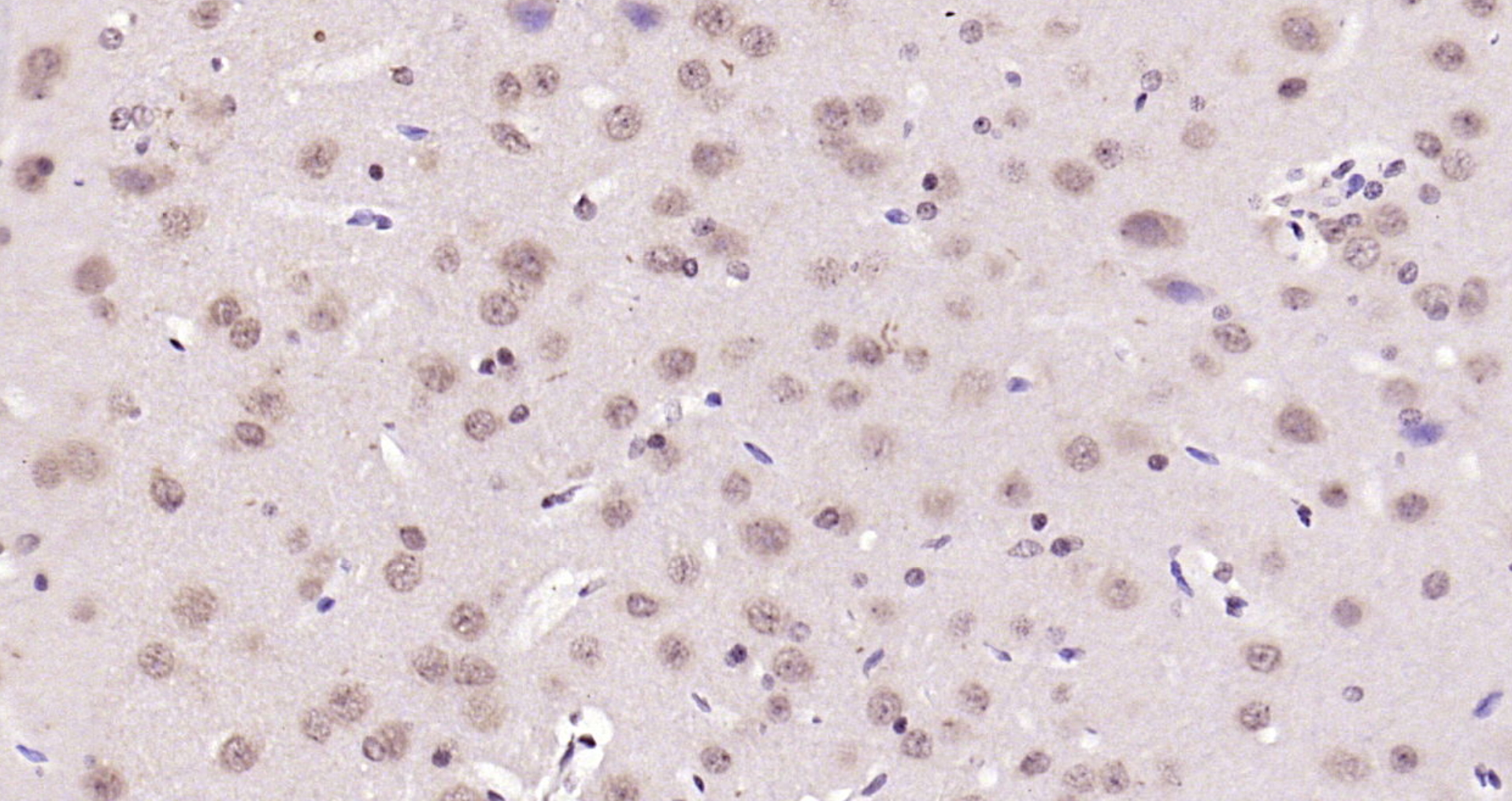

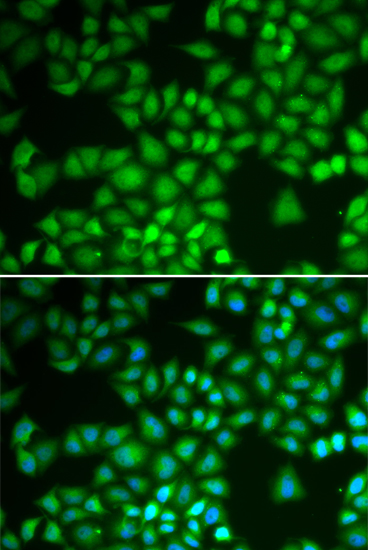
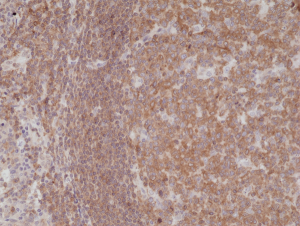
![Western blot of HeLa cell extract.? The membrane was blocked in 5% dry milk for 2 h.? After washing, a:1:1,000 dilution of the primary antibody was added to the membrane and incubated for 2 h.? Washes with buffer were performed 4 times for 5' each.? The western blot was incubated with secondary antibody (HRP Goat-a-Rabbit IgG [H&L]) diluted 1:2,000 for 1 h.?? Washes with TBS preceded color development.](https://www.genetex.com/upload/website/prouct_img/normal/GTX27549/GTX27549_20160330_WB_w_23060722_566.webp)
